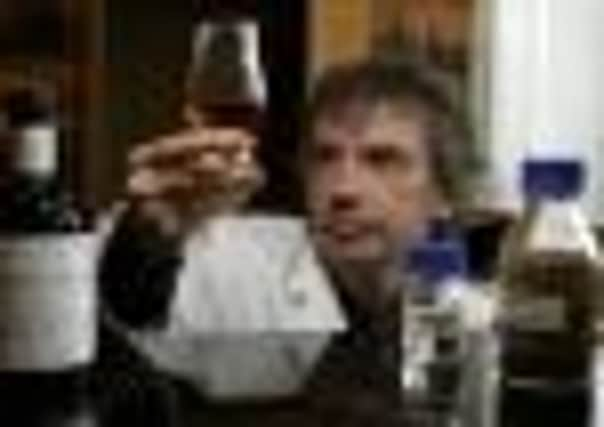Scientist turns whisky by-product into motor fuel


And while it’s not quite as straightforward as tipping 30-year-old Macallan into your tank, a Napier University science professor has been so successful in his work to turn the by-products of whisky production into petrol that he has been named Innovator of the Year by the Institute of Chemical Engineering.
“My idea was very simple but I suppose nobody else had thought of it,” Martin Tangney said. Despite the modesty, the award is a big deal. The Institute of Chemical Engineering is a worldwide professional engineering organisation and Professor Tangney was up against leading scientists from Australia, the US and Singapore.
Advertisement
Hide AdAdvertisement
Hide AdProf Tangney, an Irish microbiologist who founded Napier’s Biofuel Research Centre in 2007, developed a process of making the by-products of whisky production – draff and pot ale – into biobutanol, a biofuel with the great advantage of being able to be used in petrol vehicles without modification.
While there are no vehicles currently on the market that are approved by the manufacture to run on 100 per cent butanol, American David Ramey drove an unmodified 1992 Buick Park Avenue from Ohio to San Diego – about 2300 miles – to demonstrate the effectiveness of the fuel.
It’s estimated there are 600,000 tons of draff and two billion litres of pot ale left over from whisky production per annum in Scotland, but what’s left is to find a process for large-scale industrial biobutanol production. That is what Prof Tangney is working on. His company, the Edinburgh-based Celtic Renewables, will be undertaking commercial trials for large-scale production at the Centre for Process Innovation at Redcar, in Teeside, with funding from Zero Waste Scotland.
In September, Celtic Renewables reached an agreement with Tullibardine Distillery in Perthshire to provide the whisky by-products. While whisky by-products are used as fertiliser and feed, whisky producers have to pay the cost of removal.
Biobutanol is unlikely to replace petroleum-based petrol but it could help ease dependence on oil. As Prof Tangney says, “If you take care of the pence, the pounds will follow.”